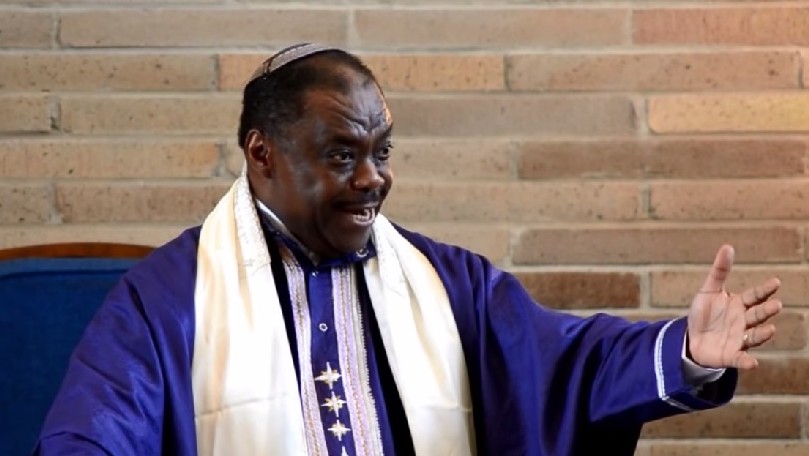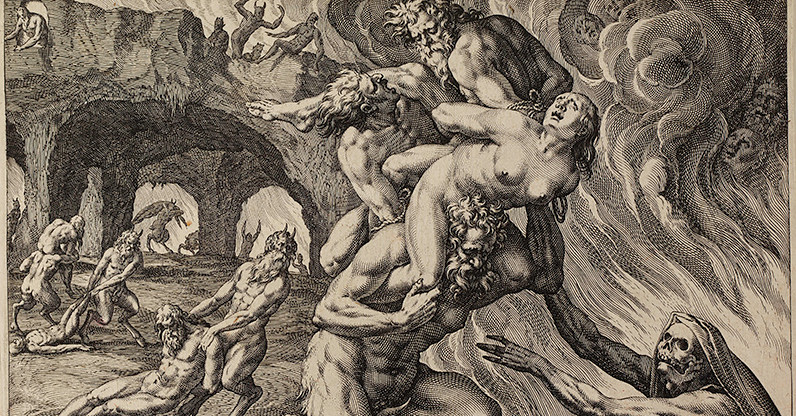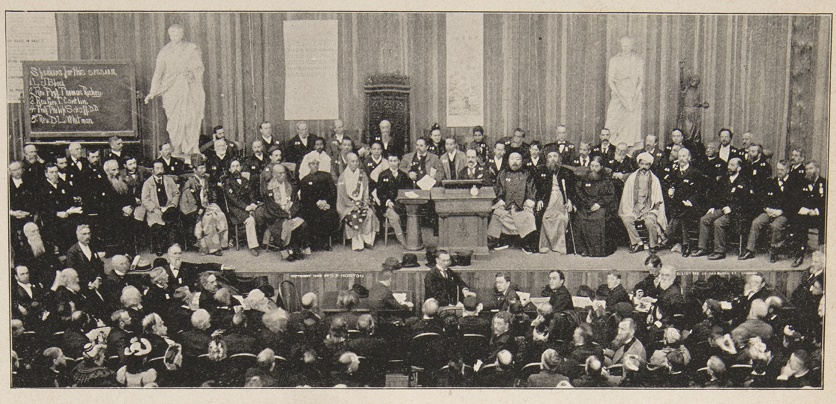Religious Cultures Under the Radar: Jews of African Descent

Judith Weisenfeld On October 4, 2015, the International Israelite Board of Rabbis, a body overseeing a group of congregations of Jews of African descent, voted to elevate Capers Funnye, rabbi of Chicago’s Beth Shalom B’nai Zaken Ethiopian Hebrew Congregation and first cousin to Michele Obama, to the position of Chief Rabbi. Installed on October 24 at a ceremony in his home synagogue, Funnye became the third Chief Rabbi in the history of the Israelite Board, which has its origin in the Commandment Keepers Ethiopian Hebrew Congregation founded in Harlem in the early 20th century by St. Kitts native Rabbi Wentworth Matthew and the first Chief Rabbi.
Under-the-Radar Religion for Nones: Björk’s ‘Vulnicura’

Mark Hulsether If there is any part of our culture where the (typically noxious) idea of trickle-down influence actually makes sense, Björk is a good place to look. She ranks amid an extremely select handful of musician’s musicians whose creative innovations especially matter. This year her superb record, Vulnicura, flew less under the popular radar than some of her earlier work, since it was coordinated with an exhibit showcasing her fashion innovations at New York’s Museum of Modern Art and features in the New Yorker and New York Times Magazine.
Reflections on the Sacred at Year’s End

Louis A. Ruprecht, Jr. The consequences of this decision thus may not be as benign as the majority opinion suggests in the end. “The First Amendment ensures that religious organizations and persons are given proper protection as they seek to teach the principles that are so fulfilling and so central to their lives and faiths” (27), Kennedy reassures us. But unless I misunderstand him, he has simply authorized religious persons and groups opposed to this decision to continue to speak out against it, in emphatic terms. This culture war is just getting started.
Training The Religious Memory

Jolyon Baraka Thomas There is nothing quite so touching (or quite so irritating) as having a total stranger slump against you in a deep sleep on a Tokyo train. Like the Internet, Tokyo trains are equally intimate and anonymous. They are spaces where one encounters fellow Tokyoites in all their wacky fashion, their frenetic mobile phone gaming, their inane conversations, their drunken abandon. Tokyo trains are raucous in the evenings and eerily silent during the day. They are often uncomfortably crowded, but they are nevertheless a place to temporarily let down one’s guard. I’ve actually boarded the Yamanote circle line and ridden it all the way around the city just so I could sneak in an hour-long nap.
Progressive Priests and Pastors in Recent Popular Media

S. Brent Plate But I am interested in the complexity of human identity, and the ways these complexities allow a variety of practices, beliefs, and behaviors. Simply for the sake of accuracy, it is important to represent diverse channels of human character. Religious identities intersect with sexual, ethnic, racial, gendered, and national identities, and none of these are monolithic. In spite of what we might think based on media representations, not all Christians are conservatives, and not all Christian clergy are narrow-minded, abstaining teetotalers in ignorant servitude to some “Church,” some tradition.
The Muppets are America

Hussein Rashid The Muppets are back on TV, and now seems to be a good moment to talk about how they represent what America is, not what it was. Their recent family news and music videos display the multi-cultural United States that is our new normal. First, of course, is the shocking news that Kermit and Miss Piggy have broken up, and that Kermit has a new girlfriend. It is a sad day, but also speaks to the fact that the US has a high divorce rate.
Giving up the Ghost?: Being Human in the Age of Intelligent Machines (Part I)

Sylvester Johnson For several centuries now, at least, a thriving humanities tradition has been established on the notion that being human is in large measure predicated on the ability to think and reason. In contemplating the nature of human ontology, Rene Descartes (1596–1650) famously quipped that the human subject can be known to exist precisely because of thinking, which requires a thinker as subject—Cogito ergo sum.
Hell House

Kelly J. Baker I want to go to a Hell House, the evangelical Christian alternative to the ubiquitous haunted houses that pop up every October. I say this almost every year, but I’ve yet to attend one. I’ve only had near misses. When I was in high school in the 1990s, local churches took their youth groups to a Judgement House, the kissing cousin of the Hell House, in Dothan, Alabama. The ride was about 90 minutes round trip, but Judgement House’s message about dangers of the modern world were apparently worth cramming boisterous teens into buses and church vans.
Peace, Love, and World Religions?

Brian Pennington In 1893, Presbyterian minister John Henry Barrows opened the inaugural World’s Parliament of Religion in Chicago by inviting the first-ever assembly of religious leaders from across the globe to join him in a “act of common worship” and to sing Isaac Watt’s Trinitarian re-write of the 100th Psalm. This less-than-catholic invocation, which concludes with the call to “Praise Father, Son and Holy Ghost,” was followed by a similar gesture when Cardinal James Gibbons recited the Lord’s Prayer, which Barrow declared the “universal prayer” that would open each of the Parliament’s seventeen days.
Reflections on Mujeres de Maiz

Lara Medina While the majority of Chicanas and Latinas participate in religious traditions that continue to attempt a male monopoly over the sacred, many others turn to traditional Indigenous ways that honor the sacredness of the universe, of women, and the ancient Mesoamerican tradition of communicating with the divine through the arts and through community. But while these women are returning to a traditional path, they are also creating a new one in response to societal marginalization, neocolonialism and ongoing racial, gender and sexual oppressions in and beyond Chicano and Latino communities.
